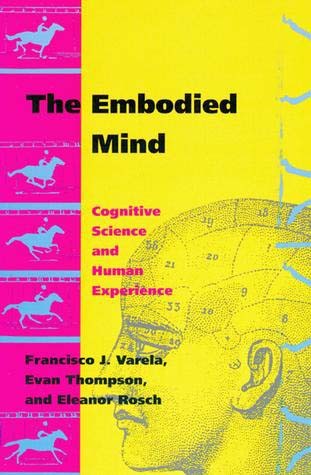William E. Connolly: A World of Becoming (2010)
Filed under book | Tags: · abstract machine, biology, connectionism, creativity, film, holism, immanence, neoliberalism, neurons, philosophy, theory

In A World of Becoming William E. Connolly outlines a political philosophy suited to a world whose powers of creative evolution include and exceed the human estate. This is a world composed of multiple interacting systems, including those of climate change, biological evolution, economic practices, and geological formations. Such open systems, set on different temporal registers of stability and instability, periodically resonate together to produce profound, unpredictable changes. To engage such a world reflectively is to feel pressure to alter established practices of politics, ethics, and spirituality. In pursuing such a course, Connolly draws inspiration from philosophers such as Maurice Merleau-Ponty, Alfred North Whitehead, and Gilles Deleuze, as well as the complexity theorist of biology Stuart Kauffman and the theologian Catherine Keller.
Attunement to a world of becoming, Connolly argues, may help us address dangerous resonances between global finance capital, cross-regional religious resentments, neoconservative ideology, and the 24-hour mass media. Coming to terms with subliminal changes in the contemporary experience of time that challenge traditional images can help us grasp how these movements have arisen and perhaps even inspire creative counter-movements. The book closes with the chapter “The Theorist and the Seer,” in which Connolly draws insights from early Greek ideas of the Seer and a Jerry Lewis film, The Nutty Professor, to inform the theory enterprise today.
Publisher Duke University Press, 2010
A John Hope Franklin Center Book
ISBN 0822348799, 9780822348795
224 pages
Francisco Varela, Evan T. Thompson, Eleanor Rosch: The Embodied Mind: Cognitive Science and Human Experience (1991)
Filed under book | Tags: · body, cognition, cognitive science, connectionism, mind, neuroscience, perception, phenomenology, philosophy, psychoanalysis, self

“Although the scientific study of the mind has developed rapidly in recent years, it has devoted little attention to human cognition understood as everyday lived experience. The Embodied Mind corrects this imbalance within cognitive science by providing a deep and sophisticated treatment of the spontaneous and reflective dimensions of human experience. Varela, Thompson, and Rosch argue that it is only by having a sense of common ground, between mind in science and mind in experience that our understanding of cognition can be more complete. To create this common ground they develop a dialogue between cognitive science and Buddhist meditative psychology and situate this dialogue in relation to other traditions, such as phenomenology and psychoanalysis.
The dialogue proceeds in five parts. The first introduces the two partners and explains how the dialogue will develop. The second presents the computational model of mind that gave rise to cognitive science in its classical form. The authors show how this model implies that the self is fundamentally fragmented and introduce the complementary Buddhist concept of a nonunified, decentralized self. The third shows how cognitive science and Buddhist psychology provide the resources for understanding how the phenomena usually attributed to a self could arise without an actual self. The fourth presents the authors’ own view of cognition as embodied action and discusses the relevance of this view for cognitive science and evolutionary theory. The fifth considers the philosophical and experiential implications of the view that cognition has no foundation or ground beyond its history of embodiment and explores these implications in relation to contemporary Western critiques of objectivism and the nonfoundationalist tradition of Buddhist philosophy.”
Publisher MIT Press, 1991
ISBN 0262720213, 9780262720212
328 pages
PDF (updated on 2020-4-17)
Comments (3)John Johnston: The Allure of Machinic Life. Cybernetics, Artificial Life, and the New AI (2008)
Filed under book | Tags: · abstract machine, artificial intelligence, artificial life, cellular automata, connectionism, cybernetics, genetic algorithms, robotics, swarm intelligence

“In The Allure of Machinic Life, John Johnston examines new forms of nascent life that emerge through technical interactions within human-constructed environments—”machinic life”—in the sciences of cybernetics, artificial life, and artificial intelligence. With the development of such research initiatives as the evolution of digital organisms, computer immune systems, artificial protocells, evolutionary robotics, and swarm systems, Johnston argues, machinic life has achieved a complexity and autonomy worthy of study in its own right.
Drawing on the publications of scientists as well as a range of work in contemporary philosophy and cultural theory, but always with the primary focus on the “objects at hand”—the machines, programs, and processes that constitute machinic life—Johnston shows how they come about, how they operate, and how they are already changing. This understanding is a necessary first step, he further argues, that must precede speculation about the meaning and cultural implications of these new forms of life.
Developing the concept of the “computational assemblage” (a machine and its associated discourse) as a framework to identify both resemblances and differences in form and function, Johnston offers a conceptual history of each of the three sciences. He considers the new theory of machines proposed by cybernetics from several perspectives, including Lacanian psychoanalysis and “machinic philosophy.” He examines the history of the new science of artificial life and its relation to theories of evolution, emergence, and complex adaptive systems (as illustrated by a series of experiments carried out on various software platforms). He describes the history of artificial intelligence as a series of unfolding conceptual conflicts—decodings and recodings—leading to a “new AI” that is strongly influenced by artificial life. Finally, in examining the role played by neuroscience in several contemporary research initiatives, he shows how further success in the building of intelligent machines will most likely result from progress in our understanding of how the human brain actually works.”
Publisher MIT Press, 2008
ISBN 0262101262, 9780262101264
461 pages
PDF (updated on 2012-10-31)
Comment (0)
